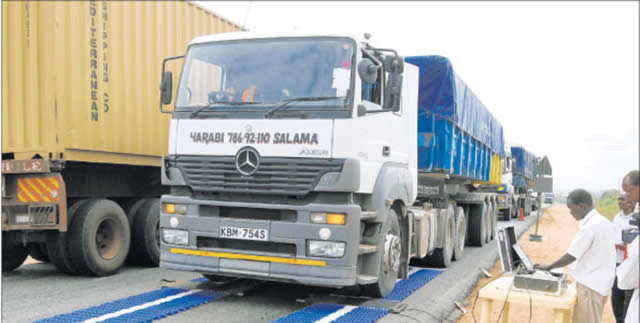Towards a continental Free Trade Area

Africa is a rising continent. It is no longer a hopeless continent as once suggested by The Economist. Intra-African trade is going to spur economic development in Africa provided that more focus is given to trade in manufactured goods as opposed to raw materials and intermediate goods.
Dr Tapiwa Mashakada Correspondent
Trade is the engine for growth in African economies. Trade creates jobs, skills and technological transfer as well as reducing poverty. Unfortunately, intra-African trade is heavily encumbered by tariff and non-tariff barriers. It is estimated that intra-African trade stands at 12 percent compared to 60 percent
intra-European trade. Africa’s share of global trade stands at 2,7 percent. Africa’s major trading partners are Europe, USA and China. Some of the factors inhibiting intra-African trade include: poor infrastructure, like for example roads, railways and ports, supply side constraints such as low industrial base, trade information asymmetry, issue of currencies, free movement of people as a component of cross border trade, non tariff barriers, lack of access to finance by traders and other economic players, low trade in services, among others.
Despite these trade hindrances, African countries are moving with speed to promote economic integration by first starting with the establishment of preferential trade areas, customs unions (by 2019) and free trade areas by Regional Economic Communities (RECs). The objective is to move Africa towards one Common Market and Monetary Union with common macro-economic convergence. Already Africa has achieved the Tripartite Free Trade Area (TFTA) of Sadc, Ecowas and EAC.
Before proceeding with this article, some definitions are required: According to ZEPARU –
- A Free Trade Area is an agreement between two or more trading partners to facilitate trade by removing all tariff and non-tariff barriers.
- A Monetary Union incorporates a shared currency.
- A Customs Union entails a common external tariff by member countries. The Abuja Treaty targeted the establishment of the African Economic Community (Customs Union) over a 34-year period.
- A Common Market adds to the FTA the free movement of services, capital and labour
- An Economic Union combines a Customs Union with a Common Market and a
- Fiscal Union introduces a shared fiscal and budgetary policy (macro-economic convergence).
In order to speed up regional integration and address the low intra African trade, Africa is working on establishing a Continental Free Trade Area by the year 2017. The 2012 African Union Summit took a decision on boosting intra-African trade and fast-tracking the CFTA which will provide an opportunity to establish the Common Market earlier than scheduled. Establishing the CFTA will widen the economic and market space and promote the free movement of people, goods and services.
Moreover, it will also solve the problem of overlapping membership of RECs and provide an opportunity to transform the African continent into a homogeneous integrated market with one billion people and a combined GDP of 1,2 trillion dollars. Pundits of economic integration actually argue that the CFTA is probably much more than just an economic agenda. It is indeed a political agenda as well. It is one of the priority targets of the African Union’s Agenda 2063, dubbed “The Africa We Want”.
All this is happening within the context of global trade facilitation developments spearheaded by the World Trade Organisation and World Customs Union. The Bali Agreement establishes the WTO Free Trade Agreement which is in the process of ratification by member countries. African countries are at various stages of depositing protocols of compliance to the WTO regarding the Trade Facilitation Agreement.
All these international and regional developments aim at boosting trade and reducing the time it takes to move goods, services and people.
In this regard, trade facilitation has become the buzz word in the parlance of the WTO Free Trade Agreement.
Africa needs to implement trade facilitation reforms which include reforming its manual custom and border procedures, improve transport infrastructure and put in place trade facilitation structures such as modern scanners and weigh bridges. Development partners are ready to help African countries in (a) customs modernisation (b) customs cooperation (c) coordinated border management and (d) establishment of one-stop-border-posts. The whole idea is to improve intra-African trade and reduce the cost of doing business.
Zimbabwe, along with Mauritius, Kenya, Malawi, Egypt and Swaziland are making steady progress towards meeting the WTO Trade Facilitation Agreement and the Continental Free Trade Area. The priority areas are: (a) implementing the revised Kyoto Convention (b) Co-ordinated Border Management (c) Transit Management System or Corridors (d) Single window (e) Elimination of non-tariff barriers (f) Elimination of the common tariff nomenclature (g) IT connectivity and (h) Extension and alignment of hours of operation of border posts (i) reduction, simplification, standardisation of trade documentation and procedures (j)Training on customs procedures, rules of origin (k) integrated and co-ordinated border management (l) private and public sector dialogue and (m) addressing corruption at border posts.
In terms of the WTO TFA dashboard, countries are expected to comply with the following:
(a) Article (1) which deals with the publication and availability of information; (b) Article (2) opportunity to comment on information before entry into force and consolidation; (c) Article (5) Border Agency co-operation; (d) Article (10) Formalities connected to importation, exportation and transit; (e) Article (11) Freedom of transit and (f) Article (13) Institutional arrangements.
Africa is a rising continent. It is no longer a hopeless continent as once suggested by The Economist. Intra-African trade is going to spur economic development in Africa provided that more focus is given to trade in manufactured goods as opposed to raw materials and intermediate goods.
The free movement of people, goods and services across borders will be catalytic to economic integration.
Zimbabwe has already made a huge step forward by establishing a truly one-stop border post at Chirundu border post.
This has made the movement of traffic, people, goods and services more fast and efficient. Africa’s arguably biggest and busiest inland port, Beitbridge, is a nightmare for both formal and informal traders. It is a porous, inefficient and bureaucratic border post. The same applies to Forbes and Plumtree. The work of the proposed Border Management Agency and National Ports Authority is therefore cut out – and that is to implement trade facilitation reforms, with speed.
Dr Tapiwa Mashakada is MDC-T HATFIELD MP and founder and Senior Research Fellow at the Harare-based policy think tank – The Africa Bureau for Development Policy and Research.









Comments